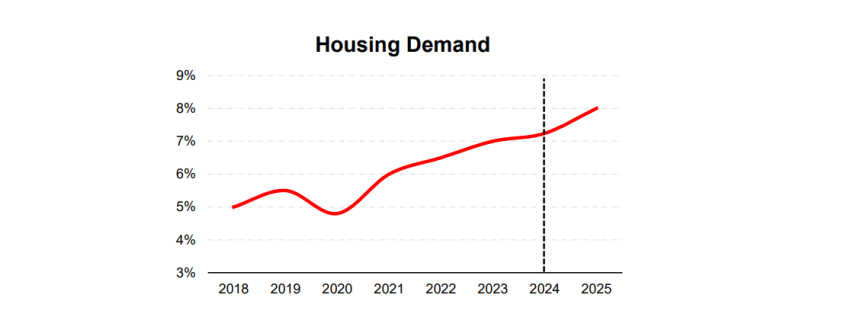As thousands stream into Lagos daily in search of better prospects, the city is facing a mounting housing crisis, with urbanisation accelerating faster than infrastructure can keep up.
The Lagos State Government has flagged this as one of its most urgent challenges, warning that the pressure on accommodation is growing more intense by the day.
Commissioner for Housing, Moruf Akinderu-Fatai, speaking at a recent ministerial briefing, traced the issue to global patterns. He cited a United Nations forecast that predicts 68 percent of the world’s population will be living in urban areas by 2050. In Nigeria, and especially Lagos, that future is already here. The city’s population has exploded to over 23 million, making it one of the largest and fastest-growing urban centres in the world.
This surge has left the real estate sector struggling to keep up. Nigeria’s housing deficit now stands at over 22 million units, worsened by mass rural-to-urban migration and a lack of adequate infrastructure in many cities. In Lagos, the mismatch between demand and supply is particularly stark formal housing cannot match the pace at which people are pouring in.

Luxury homes and commercial buildings are springing up, but affordable housing is lagging far behind. The commissioner pointed to soaring construction costs and sky-high mortgage rates of 20–25 percent as key barriers preventing many Nigerians from owning homes. The situation is especially grim for low-income earners, who now make up a growing share of Lagos’ population.
He noted that the city is also grappling with a limited land area of just 3,577 square kilometres, with a third of that covered by water. With an annual population growth rate of 3.34 percent, Lagos is running out of space and options.
Despite the grim outlook, the government says it is not backing down. Under Governor Babajide Sanwo-Olu’s THEMES+ policy direction, a multi-pronged strategy has been launched to tackle the problem. Initiatives include budget allocations for housing projects aimed at low-income groups and ongoing efforts to improve access to affordable housing finance.
But Akinderu-Fatai admitted that solving the crisis will take more than government efforts alone. With economic shocks pushing building costs even higher and global inflation affecting the price of materials, the need for stronger partnerships between the public and private sectors is now critical.
As Lagos continues to swell, the question remains: can the city build fast enough and affordably enough to house its future?



